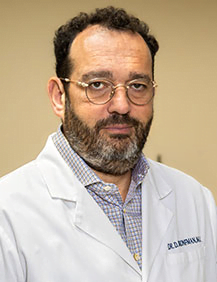The Only NYS Approved by
DOH Surgical Facility
*Same Day Appointments & Walk-Ins Welcome
The Only NYS Approved by
DOH Surgical Facility
*Same Day Appointments & Walk-Ins Welcome

Depression is a serious illness that affects the human’s brain. The sadness, emptiness and anxiety interfere with daily activities. However, depression is treatable and its signs and symptoms get better with medication. Depression during and after pregnancy is common.
There is no single cause of depression. Depression is rather due to a combination of factors. Depression tends to be a genetic condition. Women who have a family history of depression are more likely to suffer from depression during and after pregnancy, especially pregnancy after abortion. Hormonal changes in a woman’s body also may contribute to depression. Due to hormonal changes in a woman’s life, it is known that women are at a greater risk of suffering from depression in certain periods of their lives, like during puberty, menopause, after abortion and of course pregnancy. Depression before menstrual periods or depression after pregnancy abortion is also possible. Changes in the brain chemistry may also contribute to depression. One of the most important things that contributes to depression and may trigger it are stressful events in a woman’s life like for example, the death of a family member or a loved one, poverty, any form of abuse, etc.
The depression after childbirth is known as postpartum depression. Hormonal changes during pregnancy and after childbirth are thought to contribute in postpartum depression. During pregnancy the levels of estrogen and progesterone are increased. Immediately after childbirth, within the first 24 hours these levels of estrogen and progesterone return to normal. Some theories try to explain the postpartum depression as the result of the above mentioned hormonal changes right after the delivery. Other factors besides the hormonal changes, that may contribute to postpartum depression include:
However, postpartum depression and the depression not related to pregnancy and childbirth are treatable with medication. The most important thing is to know and admit that you have a problem. Seeking the right help on time is the key to getting better. Depression treatment includes not only administration of various antidepressants that are available nowadays, but it also includes talk therapy. The talk therapy includes talking to a psychologist, therapist, etc. With talk you will learn how to change the way you feel, think and act during pregnancy and especially after childbirth or after abortion. In the other hand, antidepressant drugs will help relieve the symptoms.
Depression during pregnancy raises the risk of having premature childbirth, having various problems during pregnancy or delivery, but also having a baby with low birth.
Untreated postpartum depression will affect your life and the ability of being a parent. You will not be able to meet your child’s needs. It can make your depression get worse.

Dmitry Bronfman, MD, is a board-certified gynecologist who specializes in all aspects of contemporary women’s health, preventive medicine, pelvic pain, minimally invasive and robotic surgery, and general, adolescent, and menopausal gynecology.
Brooklyn Abortion Clinic